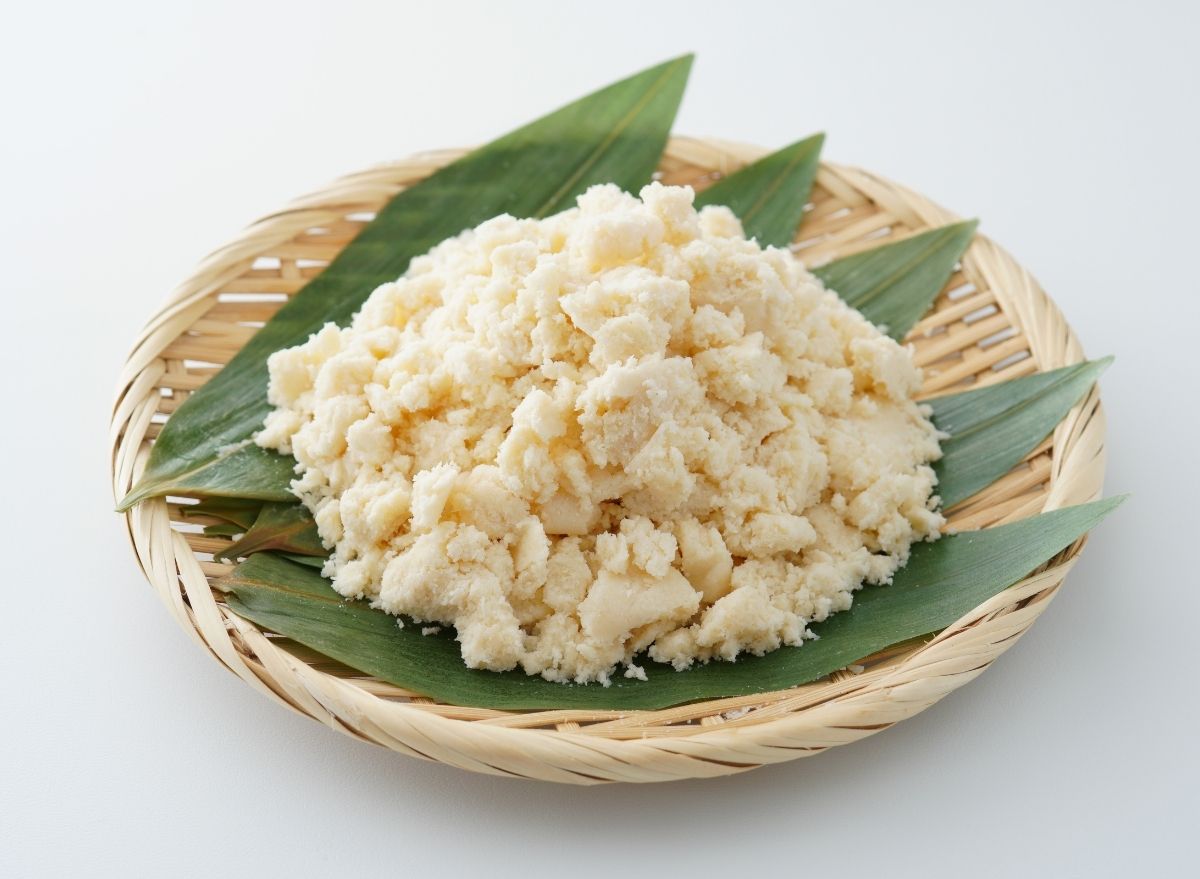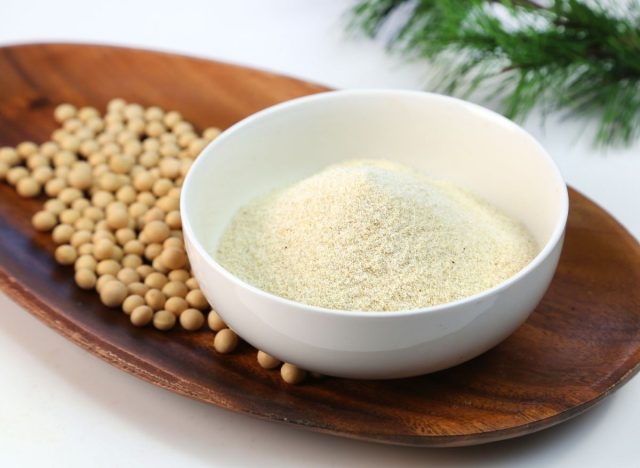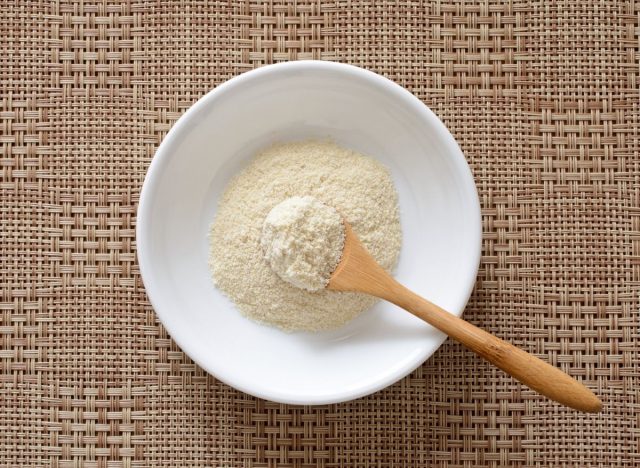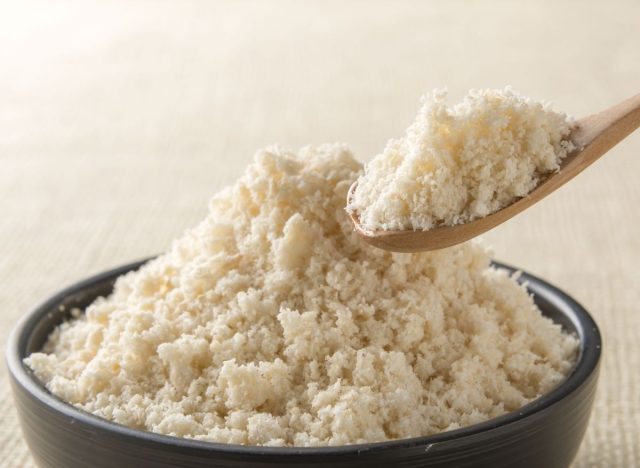This High-Protein Food Lowers Cholesterol and Shrinks Belly Fat, Says New Study

What if there was a food that could potentially help with your weight loss goals, while also helping to reduce waste and contribute to environmental health as well?
Believe it or not, researchers have recently discovered that the “waste” left behind after turning soybeans into soy milk or tofu can actually be fermented and used as a health food with promising potential.
Scientists from Nanyang Technological University in Singapore and Waseda University in Japan released a study that shows okara, which is the pulp-like waste left behind from soybeans, may be able to help improve fat metabolism, manage obesity, and even lower cholesterol.
According to this study, over 14 million tons of okara are produced every year, so if their findings can be put to use, this soybean waste may be a helpful solution to both the health of the world and the humans that inhabit it.
What is okara?

The word looks a lot like okra, but okara is far from the fried green vegetable you’d find in the southern U.S. Okara, which is also known as soybean pulp, is the pulp that’s left over after the process of pureeing soybeans for soy milk or tofu.
While it may sound strange at first, it is actually a popular ingredient in many Japanese dishes and contains high amounts of protein, fiber, and calcium.
While okara can be consumed in its unfermented state, the researchers of this study found that they could ferment it with a similar process used to ferment miso or tempeh. What they discovered was that the fermented version of okara had more protein and antioxidants, but unfortunately had less soluble fiber.
What are the potential health benefits?

This recent study was performed on mice, so more research needs to be done to determine the exact effects on human health, but the results are certainly promising.
For one, researchers found that okara may have the ability to help manage body weight and improve fat metabolism. For the study, the mice were grouped into four different diet types: a high-fat diet with fermented okara, a normal diet, a high-fat diet without okara, and a diet with unfermented okara instead of fermented. After three weeks of the study, the mice that were fed fermented okara gained the least amount of body weight compared to the other groups.
These mice specifically had less visceral fat as well when compared to the high-fat diet without okara, which is the dangerous type of fat that grows around your abdominal organs.
Not only that, but the group that was fed the fermented okara had lower levels of cholesterol and triglycerides, which is a hopeful discovery for preventing heart disease and bettering heart health.
What does this mean for you?

As we mentioned before, these findings are fascinating, but more research needs to be done to see how the results hold up for human-based studies. In the meantime, the team of researchers from NTU and Waseda are working with other companies to develop okara-based snacks and easier ways to incorporate them into your daily diet. If you want to get a jump start on trying this unique food, you can find it in powder form at some supermarkets.
For more healthy eating tips, make sure to check out The Best Foods That Can Help Lower Your Risk of Heart Disease.